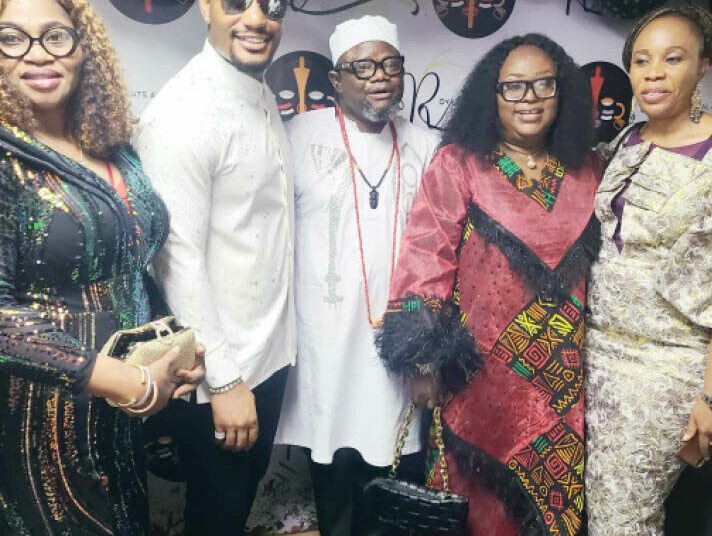The maiden edition of Nollywood Producers’ Summit brought together producers, industry veterans, government officials and international partners with a united mission to equip Nigerian movie producers with the tools and leverage on partnerships needed to thrive globally without losing our culture and authenticity.
Held at the Lagos Country Club, Ikeja, Lagos the event served as both a call to action and a blueprint for sustainable growth in Nigeria’s dynamic film industry.
National President of the Association of Movie Producers (AMP), Amb (Dr) Queen Blessing Ebigieson, speaking on the theme “Positioning the Nollywood Producer for Success: Creating Authentic Content in a Digital World”, said the theme was chosen to remind producers that content, not just profit should be at the heart of every project.
“Some producers just want to make a movie and make money, without caring about the content. But award-winning, globally appealing work comes from originality,” she stressed.
“Our streets are full of untold stories. Why should we borrow from others when we can tell our own?” The AMP president emphasized that in the digital age, producers must treat filmmaking as a business. “If you’re putting money into a movie, you have to think about getting it back. We must strategize, choose content that audiences will receive well, and plan for profitability,” she said.
Public Affairs Officer at the U.S. Consulate General in Lagos, Julie P. McKay, highlighted Nollywood’s growing influence on American and global audiences.
“Nollywood is not just a film industry, it’s a global phenomenon,” she said, noting how the Netflix hit The Black Book proved the industry’s ability to dominate streaming charts worldwide.
“The rise of digital platforms like Netflix, Amazon Prime, and YouTube offers huge opportunities, but it also demands innovation, adaptability, and strategic collaboration.”
McKay outlined several U.S.-supported initiatives aimed at boosting the creative sector, including mentorship programs, screenwriting labs, and international exchange opportunities for Nigerian filmmakers. “Collaboration is the key. When Nollywood and Hollywood work together, the results benefit both sides of the Atlantic,” she added.
Executive Director of the National Film and Video Censors Board (NFVCB), Dr. Shaibu Husseini, lauded the Producers’ Guild and notes that the summit’s focus on originality was essentially while warning that professionalism and ethics are non-negotiable.
“In the digital world, everyone can be a filmmaker, but not everyone maintains standards,” he said. “Reputation is capital in this business. Ethical dealings and professional excellence will attract partners and investors.”
Husseini also urged producers to leverage data-driven storytelling, invest in capacity building, and adopt multi-platform release strategies. On regulation, he appealed for compliance: “Forging censorship certificates or bypassing classification erodes credibility and scares away investors. Engagement, not shortcuts, will build a globally competitive industry.”
Across speeches and panel discussions, a consistent message emerged: Nollywood’s strength lies in telling authentic Nigerian stories, embracing digital tools, forging global partnerships, and upholding professional standards.
For Dr. Ebigieson, the summit’s biggest success was bringing producers together under one roof. “This is the first of its kind for our association, and it shows what we can achieve when we unite,” she said.
With the promise of more editions ahead, the Nollywood Producers’ Summit has positioned itself as a critical platform for shaping the future of Nigeria’s film industry — one where creativity meets commerce, and authenticity remains the industry’s most valuable export.





